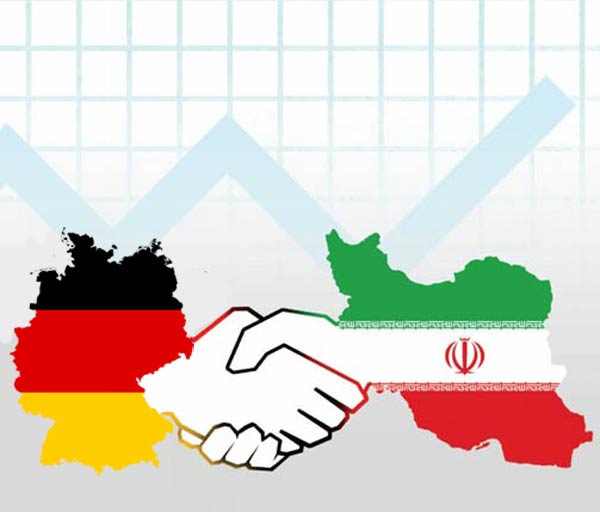
Iran’s H1 exports to Germany hit €110m

Based on the data, exports to the European country fell 43 percent in the mentioned time span compared to the past year.
Affected by the U.S. sanctions, Germany’s exports to Iran also plunged by 48 percent to 678 million euros ($758.8 million).
Germany exported mainly machinery, chemical products, cars and car parts to Iran.
Last month, the managing director of Germany-Iran Chamber of Commerce and Industry (AHK Iran) said the current political situation (sanctions) is negatively affecting the economic relations between Iran and Germany.
“The economic relations between Iran and Germany will only grow when the political situation becomes stable again,” Dagmar von Bohnstein said in an interview with the portal of Iran Chamber of Commerce, Industries, Mines and Agriculture (ICCIMA).
The official noted that since U.S. withdrawal from the nuclear deal and re-imposition of sanctions, German companies have shown more willingness for continuing economic activities in Iran, compared to other European countries, although their activities have also been affected by the U.S. sanctions.
“Despite the sharp decline in trade between the two countries, Germany remains Iran’s top trading partner in Europe,” she said adding that “Despite the U.S. pressures on European companies, 60 German companies are still operating in Iran.”
The German companies operating in Iran are active in a variety of fields, including machinery and industrial equipment, agriculture, petrochemicals, pharmaceuticals, renewables and foodstuff.


Trump weighs using $2 billion in CHIPS Act funding for critical minerals

Codelco cuts 2025 copper forecast after El Teniente mine collapse

Electra converts debt, launches $30M raise to jumpstart stalled cobalt refinery

Barrick’s Reko Diq in line for $410M ADB backing

Abcourt readies Sleeping Giant mill to pour first gold since 2014

Nevada army depot to serve as base for first US strategic minerals stockpile

SQM boosts lithium supply plans as prices flick higher

Viridis unveils 200Mt initial reserve for Brazil rare earth project

Tailings could meet much of US critical mineral demand – study

Kyrgyzstan kicks off underground gold mining at Kumtor

Kyrgyzstan kicks off underground gold mining at Kumtor

KoBold Metals granted lithium exploration rights in Congo

Freeport Indonesia to wrap up Gresik plant repairs by early September

Energy Fuels soars on Vulcan Elements partnership

Northern Dynasty sticks to proposal in battle to lift Pebble mine veto

Giustra-backed mining firm teams up with informal miners in Colombia

Critical Metals signs agreement to supply rare earth to US government-funded facility

China extends rare earth controls to imported material

Galan Lithium proceeds with $13M financing for Argentina project

Kyrgyzstan kicks off underground gold mining at Kumtor

Freeport Indonesia to wrap up Gresik plant repairs by early September

Energy Fuels soars on Vulcan Elements partnership

Northern Dynasty sticks to proposal in battle to lift Pebble mine veto

Giustra-backed mining firm teams up with informal miners in Colombia

Critical Metals signs agreement to supply rare earth to US government-funded facility

China extends rare earth controls to imported material

Galan Lithium proceeds with $13M financing for Argentina project

Silver price touches $39 as market weighs rate cut outlook

















